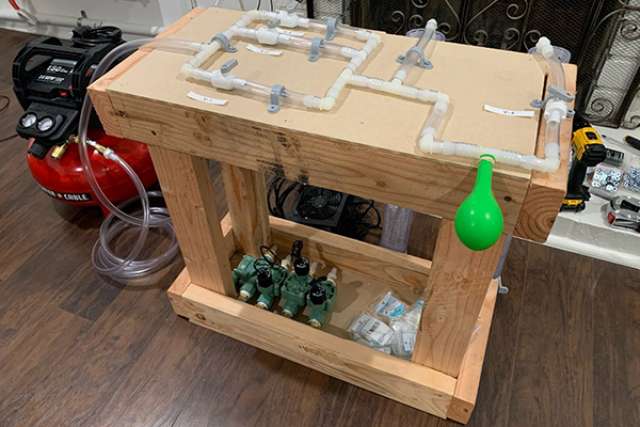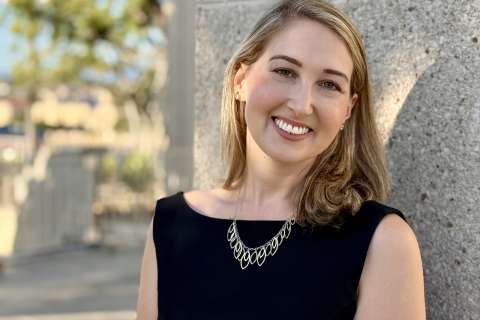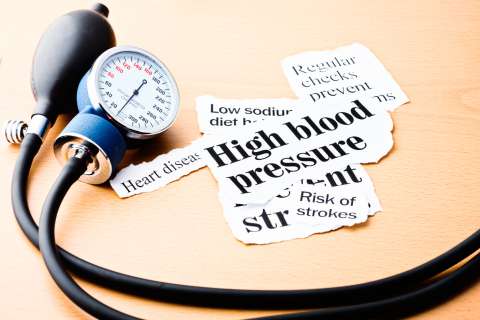LOS ANGELES (March 27, 2020) – A UCLA Biodesign Fellow has developed in one week, a working, low-cost ventilator prototype built from parts purchased at Home Depot. If additional development with medical-grade materials, further testing and clinical studies yield positive results, the device could have the potential to provide much-needed support in treating patients at scale during the COVID-19 pandemic.
Mechanical ventilators in today's hospitals are highly sophisticated, powerful devices, capable of adapting to the varying needs of patients with a wide range of pulmonary disorders, including chronic obstructive pulmonary disease, or COPD, and amyotrophic lateral sclerosis, or ALS. These full-featured ventilators are complex and expensive, costing from $30,000 to $50,000 and requiring dedicated software to administer high concentrations of oxygen to assist patients in respiratory distress.
But treatment of COVID-19 does not need that level of sophistication, and the new prototype – a sort of "ventilator-lite" – might provide the essential lifesaving functions at a fraction of the price.
Glen Meyerowitz, a graduate Electrical and Computer Engineering student at the UCLA Samueli School of Engineering, watched with alarm earlier this month as news reports and medical professionals predicted a severe shortage of ventilators needed to treat the projected surge in COVID-19 patients. He looked at research coming out of Seattle, China and other disease hot spots around the world, reviewed widely accepted treatment protocols and consulted with clinicians from around the U.S. to determine the exact functionalities needed in a device.
His review of clinical research and discussion with over a dozen medical professionals confirmed that COVID-19 patients often need treatment for acute respiratory distress syndrome, or ARDS, which has a much narrower treatment regime than that needed by many patients typically seen in an ICU. He set out to design a smaller, simpler device capable of providing the standard level of care for ARDS – the ARDSnet protocol – but without the extra features and price tag of a standard machine. Using parts purchased at Home Depot, he built his prototype in a little under one week.
Early tests were encouraging, and now Meyerowitz is in contact with several certified design and manufacturing firms to begin medical-grade production of the devices for testing at the UCLA Simulation Center in preparation for an IRB study at UCLA Health.
"Direct collaboration with UCLA Health’s clinical community is key to identifying and optimizing the specific features needed for this unique clinical challenge," said Meyerowitz, adding that the team is working with UCLA Health's Department of Anesthesiology to best replicate the conditions that clinicians are facing.
Although Meyerowitz and the team are not yet able to predict the final price tag, they expect the ventilators might be mass produced in the $1,000 range per unit.
"This low-cost ventilator prototype is an excellent example of how interdisciplinary teams at UCLA Health are collaborating to find medical solutions. Downstream considerations, such as readily available manufacturing and supply chain resources, regulatory clearance, as well as hospital staffing in the event of a surge will need to be addressed to move this expeditiously from design and development into accelerated service."
- Jennifer McCaney, Co-Executive Director of UCLA Biodesign
"The UCLA Biodesign Fellowship provides inventive engineering, medicine and business entrepreneurs an opportunity to prototype solutions to clinical needs at UCLA Health. In the COVID-19 crisis, Glen saw a possible opportunity to transform the practice of medicine and individual patient lives in an immediate and profound way."
- Desert Horse-Grant, Sr. Director, UCLA Health Research and Innovation
Co-Executive director of UCLA Biodesign
"UCLA Biodesign utilizes an interdisciplinary approach to assemble a team of experts to tackle some of today’s most challenging clinical needs – and there is no greater need at this time than saving lives during the fast-growing COVID-19 pandemic."
- Johnese Spisso, President of UCLA Health
CEO of UCLA Hospital System and Associate Vice Chancellor of UCLA Health Sciences
Member of the Biodesign Program Advisory Board



